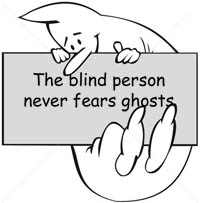I guess I probably still qualify as social media virgin. Lots of frantic petting as I try to make up for lost time, but the truth is I’ve only been blogging for 5 months, active on Twitter for just over a year and still cannot really be arsed with Facebook.
Like all virgins, I am therefore somewhat by definition a touch naive. I like to believe that when I follow someone on Twitter or subscribe to a blog, I get to connect with the actual individual I’m interested in.
For example, I enjoy following Duncan Bannatyne on Twitter. I have enjoyed reading his books; he has a very interesting life story, which in many respects he lives out on Twitter, and I enjoy the opportunity to feel part of it. Now if I ever had an inkling that he was not responsible for his own tweets and that he employed a ghost writer or even shared the job out with his PA, I’d be off like a shot.
I’d feel cheated. It’s as bad as a doting fan paying big bucks to watch a mega recording artist perform live, only to discover half way through the show she was lip-synching. It’s probably as bad as removing ones wedding ring before entering a singles bar….
I only found out recently that there is a massive ongoing debate on this very issue. It’s been raging for years.

In the red corner you have the PRs, the seasoned command & control communications veterans and the ghost bloggers themselves. These guys think ghost blogging is an honourable and essential profession, given that their clients are far too busy and important to actually write for themselves.
And if they didn’t do it for them the world would be an emptier place because we’d all be missing out from their nuggets of wisdom, and sparkling wit & repartee.
Of course their clients don’t like them to disclose who they write for – that would be embarrassing right? That could lead to reputational damage right? So it’s OK to do it provided no one finds out. Oh dear. So where is the integrity and honesty in that?
So the red corner argues that professional communicators have always supported CEOs, celebrities and politicians by writing their speeches, their books and their letters since time immemorial. It’s true, and I have no issue with that. But these media are not social. They are not blogs; which have fundamentally changed the rule book.
Needless to say, I am in the blue corner. If I want to read facts about a company, I will read its annual report and check out its website. If I want to understand what makes a company tick I’ll subscribe to its employee blogs and follow its staff on Twitter, where I can connect with them directly. And part of what makes the experience so interesting and the connection so compelling is the blend of work and play; the immediacy; the shared pleasure in sharing; and the free-flow of consciousness.
Actually this blog post was triggered off by a comment I read a few days ago in a piece on www.ragan.com called It’s just ridiculous to argue about ghost-blogging
Try the link, it may work for you. I cannot access it now unless I pay a rather chunky subscription fee.
An anonymous contributor added this in a comment in his or her anonymous defence of ghost blogging (spot the irony): “a highly polished, marcom speak-laden entry, is highly preferable to undisciplined, poorly constructed, rambling from a great CEO who is not a writer”.
I’m sorry I don’t buy this. I don’t read blogs to be entertained by brilliant writing. I read blogs because I am interested in listening to that person. I want to feel connected to the author. I can’t do either if I know the blog is ghost written. If you don’t have time to blog, don’t do it. That’s fine. I won’t think any less of you! But if you are going to blog, be genuine and be real.
I like the advice that Kodak give on the subjectin their Kodak Social Media Tips: “Always be transparent. When you are communicating in social media say who you are and who you work for. Don’t try to be sneaky and plant comments, don’t hire people to go out and say nice things about you and stay away from ghost writing. Be genuine and be real.”
I’m going to leave the last word to an old pro who knows what he is talking about. If I’m a social media virgin, I guess Robert Scoble, is the Casanova. In his 2003 blogging manifesto he wrote: “Use a human voice. Don’t get corporate lawyers and PR professionals to cleanse your speech. We can tell, believe me.” Scobleizer – The corporate weblog manifesto
Wise words indeed from the undisputed heavyweight champion of the blogging world!

